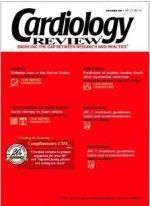Case report: Tight glycemic control for a diabetic CABG patient
A 71-year-old woman was admitted to the coronary care unit with unstable angina requiring intravenous heparin and nitroglycerin. Her risk factors included type 2 diabetes mellitus controlled with oral agents, hypertension, hyperlipidemia, a 40—pack-year smoking history, and obesity. Cardiac catheterization showed a 70% mid-left main lesion, an 80% proximal left anterior descending lesion, a 75% proximal right coronary artery lesion, and a total occlusion of the mid-circumflex artery with right-to-left collaterals filling a large obtuse marginal branch. Her ejection fraction was 35%, with posterolateral hypokinesis and 2 mitral regurgitation. Her serum glucose level averaged 240 mg/dL before catheterization.
At the time of surgery, after anesthetic induction, a glucose-insulin-potassium (GIK) solution consisting of 5% dextrose in water, 80 U of regular insulin, and 40 mEq of potassium chloride was started at 30 mL/hr and titrated to keep the blood glucose level below 200 mg/dL. The patient’s serum glucose level averaged 150 mg/dL during the surgery. Myocardial revascularization was achieved on cardiopulmonary bypass with blood cardioplegic arrest using the left internal mammary artery to bypass the mid-left anterior descending artery and single saphenous vein grafts to the distal right coronary artery and obtuse marginal branches. After bypass, the intraoperative transesophageal echocardiogram showed an ejection fraction of 45%, markedly improved posterolateral wall motion, and only trace mitral regurgitation. The GIK solution was continued for 12 hours after the patient’s arrival in the intensive care unit. She was started on a fixed dose of isophane insulin with a regular insulin sliding scale designed to keep serum glucose levels below 200 mg/dL.
The patient had a maximal weight gain of 5 lb. She was extubated within 6 hours of arrival in the intensive care unit and required no inotropic support to maintain a cardiac index over 2 L/min/m2. She was discharged on the sixth postoperative day, with prescriptions for isophane insulin, an HMG-CoA reductase inhibitor (statin), an angiotensin-converting enzyme inhibitor, aspirin, a beta blocking agent, and a diuretic.
